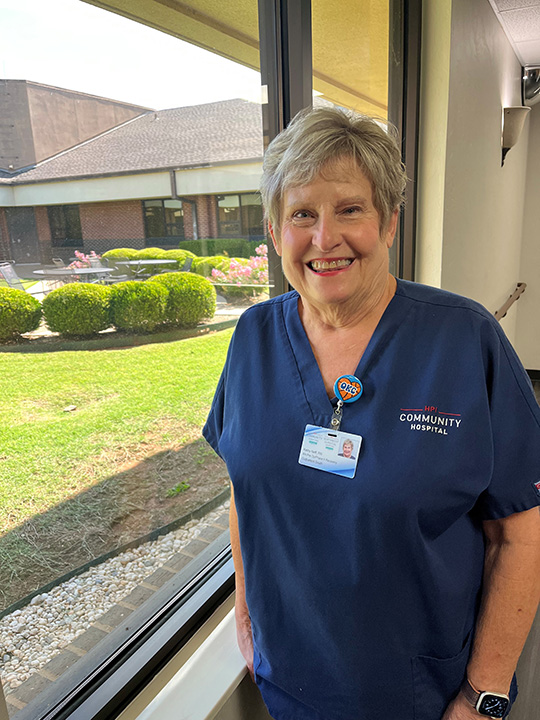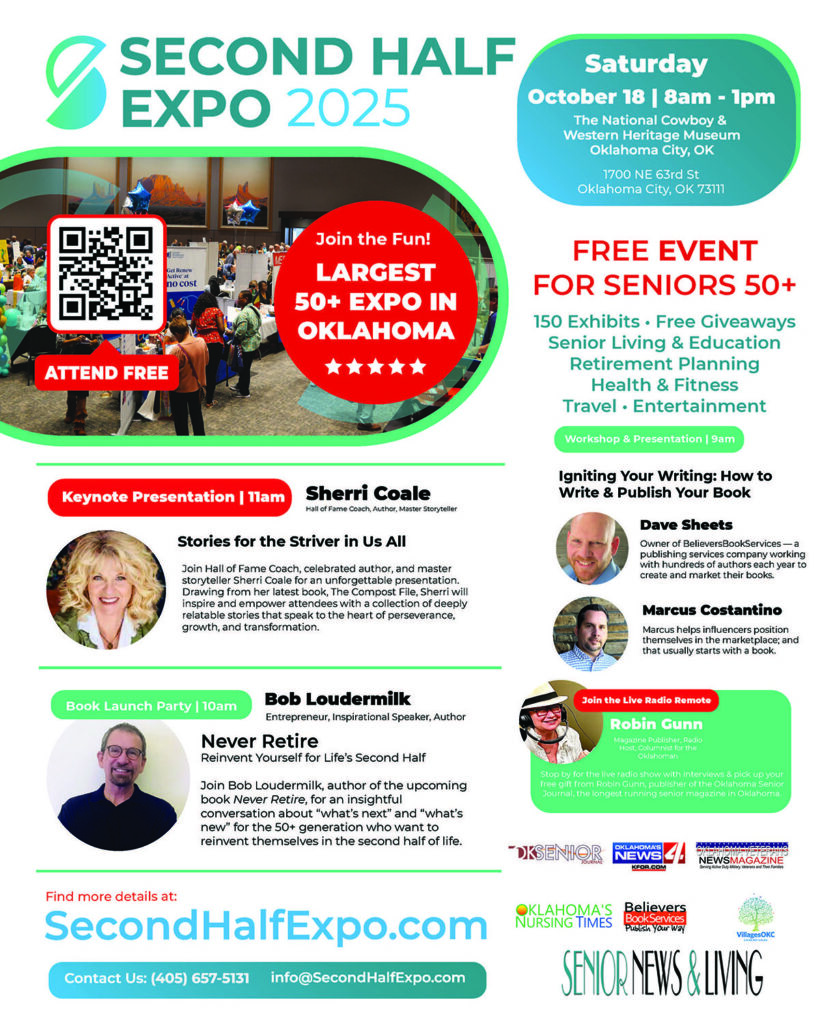RN loves talking with patients
by James Coburn, staff writer
Kathy Neff, RN, has invested 53 years of her life in patient care since becoming an LPN in 1972. Fifty-three years later, she loves being a preoperative and postoperative staff nurse at HPI Community Hospital South, located in Oklahoma City.
Neff joined the ranks of registered nursing when graduating from St. Anthony School of Nursing in Oklahoma City. St. Anthony School of Nursing, proudly graduated nurses from 1919 to 1983.
Neff continued at St. Anthony hospital in coronary care for five years before transferring to the emergency room there for 30 years. She was about to retire until a friend at Community Hospital South invited her to apply for a part-time position there.
“Here I am 20 years later, and I enjoy it, and I don’t want to retire yet,” Neff said. “I just enjoy patient care — I enjoy getting to know patients — I enjoy visiting with them and their families.”
So, patient care became a better fit for her than working in an ER where patients are often in critical condition, she said. Her patients are stable and much more talkative after an elective surgery.
Her kindness and skills made her the Community Hospital South 2024 recipient of the DAISY Award. The DAISY Foundation honors nurses with profound gratitude for what they do. The DAISY Award is a recognition program to celebrate and recognize nurses by collecting nominations from patients, families, and co-workers.
Community Hospital is a specialty hospital with two locations one on the North side of the city at 9800 Broadway Extension and the other on the South side of OKC off SW 89th Street.
Neff said HPI Community Hospital South is a smaller hospital with fully staffed nurse-to-patient ratios.
“You get more personal care because you have more time to deal with the patients instead of a big group of patients at larger hospitals,” Neff said. “What I’ve heard is they are very short staffed.”
Neff has had her share of patients pass away during her 53-year-career. And, getting to know families during that time has touched her life.
“There’s been patients that I will never forget,” she reflected.
Community Hospital South is a specialty hospital. Neff said that patients have come to Community Hospital South who are critically ill. It may be challenging to transfer them to another hospital to treat a condition such as severe septic shock. However, not all hospitals will have an available bed, Neff explained. So, when a patient is already in a facility that’s giving care, such as Community Hospital South, the doctor who would be designated to receive them at the other hospital might refuse to take another one.
“You’re left here with someone who’s very sick. But I’ve seen people come out of that (severe sepsis shock) with a lot of antibiotics and a lot of time in the ICU,” Neff said.
According to US News, Community Hospital ranks high in colon cancer surgery, gastroenterology and GI surgery, neurology and neurosurgery, obstetrics and gynecology, and orthopedics. Community Hospital South has a streamlined, efficient environment. Additionally, the hospital is a BlueDistinction Center+, which means it has been recognized for its expertise and efficiency in delivering specialty care.
“I have some lifelong friends from patients that I will have forever,” Neff continued. “I feel it’s rewarding at the end of the day, even though you don’t feel you gave 100 percent — you did. Sometimes you work when you’re very tired. You have a lot on your mind, but you try to do your very best with that patient. At the end of the day, you’ve done your best and you’re rewarded by their appreciation. And it’s always the people you feel you didn’t spend a lot of time with, those are always the ones that say, ‘That nurse was so nice to me.’ It’s amazing how people appreciate a few minutes of your time just to visit with them. And I love to visit.”
She said nursing has changed a lot since she entered the profession.
“I tell those young nurses that I work with all the time, ‘You know back in the olden days…’ I mean things you don’t think about unless you’re older,” Neff said. “I mean like we hung bottles for IV bags. When we’d hang a drip, we didn’t have those fancy pumps. You had to sit there and time it with your watch. And when a doctor walked up to your desk, you’d always get up and let them have your seat. And I still do that. And (the young nurses) go, ‘Mam, that went out years ago.’”
Back in the day, what the doctor said was the way it would be, Neff said. Nurses were hesitant in sharing their opinions.
“Now it’s more of a team. I think the doctor asks for the nurses’ suggestions,” Neff said.















